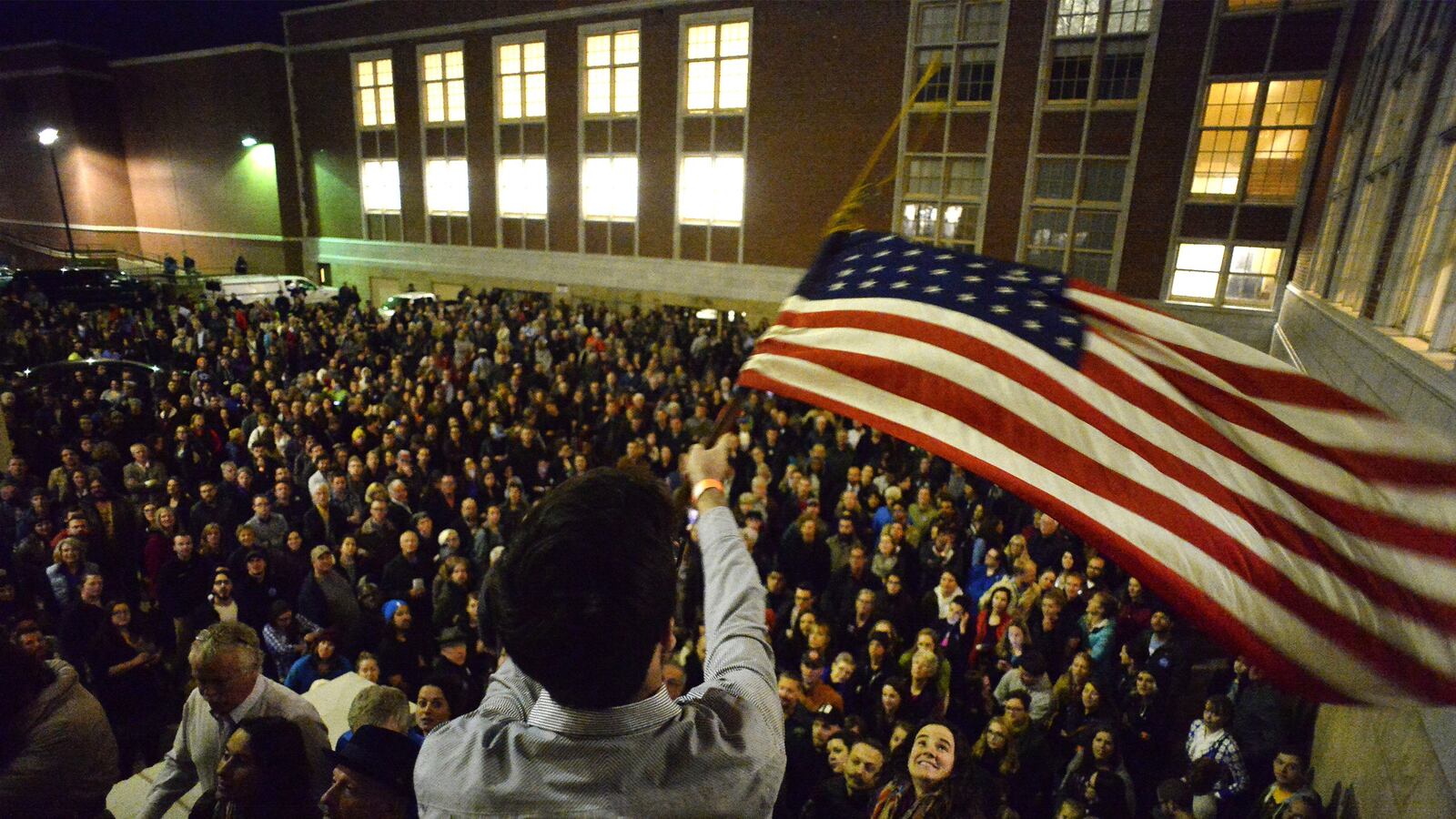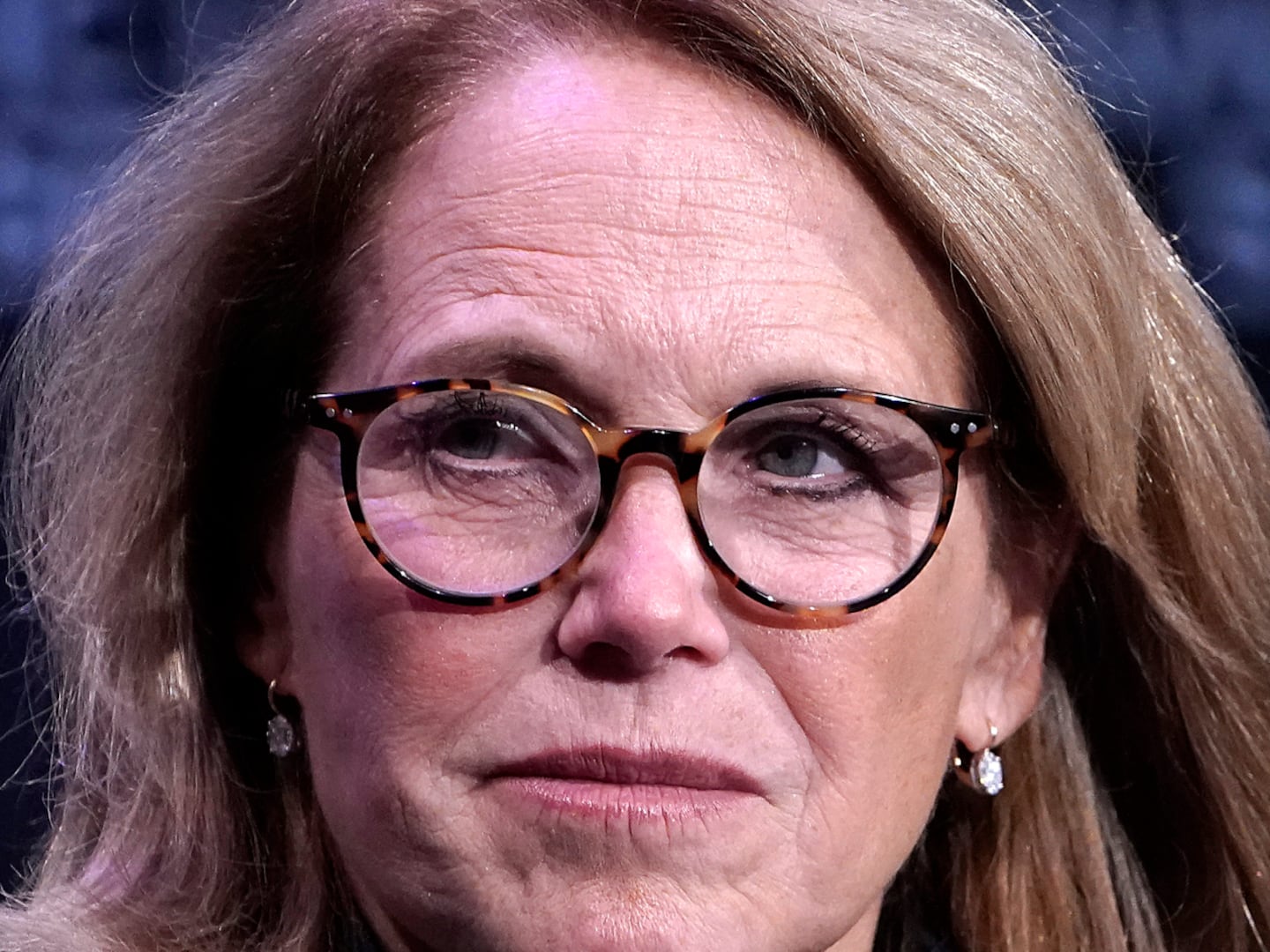The 2016 election has thus far been marked by an apparent uptick in voter anger, fueling pissed-off, outside-the-mainstream candidates proposing dramatic and radical policy changes that represent a significant departure from the American tradition and that indicate a fairly prevalent belief that government can, in fact, fix everything that is wrong with our country.
A great many of Donald Trump’s supporters believe that if only we can make America a Muslim-free, largely immigrant-free country, while putting the screws to Mexico, China and Japan economically and then sharing the spoils among a downtrodden, largely white populace, their daily lives will be dramatically improved.
Meanwhile, a great many of Bernie Sanders’s supporters similarly believe that if we nix free-trade deals and hammer the rich and every major industry to pay for things like Medicare-for-all and otherwise vastly heightened social spending, everything will suddenly be wonderful for them. Former Secretary Hillary Clinton, meanwhile, is letting her true policy colors show and running on a Sanders-lite policy platform that is a bit to the right of the Vermont socialist but still appeals to people engaging in a similar thought process to what a lot of Trump and Sanders voters undertake daily: My life is terrible, the government is the only thing that can fix it, and I’m voting for radical change.
This is problematic, not just because it leads to some pretty far-out policies that are, at best economically illiterate and at worst the kind of things that, if implemented, would likely have really negative consequences for exactly the people who believe they would be helped by them. The bigger problem with this line of thought is that it pretends that government can fix what society collectively hath wrought upon itself by America becoming, well, what we have allowed ourselves to become. To put it another way, as the old cartoon character Pogo would say, “We have met the enemy and he is us.”
Talk to virtually any Trump voter, and a good chunk of Sanders voters, and you immediately come away with the sense that they are grasping at policy straws to deal with any or all of the following problems: crumbling families and communities; drug addiction; isolation and a lack of any social support structure; economic changes that have left them feeling desperate, marginalized, and alone; an inability to grapple with what feels like a more chaotic, unpredictable and anarchic society.
Many of them long for what used to be (or what they think used to be): The happy, nuclear family, with well-behaved kids who didn’t dabble in drugs or sexting, where Dad went to work in the factory and Mom stayed at home and kept house, everyone knew their neighbors, their neighbors were people like them, and life was consistent, stable, and predictable. Of course, logic would dictate that this 1950s-esque illusion was just that: Plenty of “happy, nuclear families” were in fact mergers of a miserable but dutiful breadwinning father and a bored, anxious, depressed, possibly over-drinking mother, with kids who probably did dabble in drugs or alcohol and/or sex at too-early-an-age.
Dad’s factory job was still a factory job, with all the attendant health issues that could come with it, and part of why life felt stable and secure and predictable may well have been because women didn’t work, racial inequality and discrimination was far more evident and overt than it is now, people were fairly constrained by over-restrictive social norms, and the payoff for “making it big” was far, far less than it is today.
There are a lot of Americans, especially in these two camps of voters, who seem to want to go back to those days, at least in part. But the correct answer is to go forward and come up with something better while recognizing that if people’s fundamental anxieties and troubles are to do with crappy family life, a lack of civic involvement, people not having a social circle and human support structure, then it’s up to us to fix it by fixing ourselves, our families, our communities, and ourselves—not trying to deal with these fundamental problems through policy.
There is a certain irony in someone who makes her living by advocating for and opposing particular policies saying “government policy isn’t the solution.” There’s also perhaps a predictability in a self-described libertarian saying that, too.
It’s also fair to say that yes, some of these problems might be ameliorated to a small degree through given policies. For example, there is an array of policy proposals out there to deal with the opioid crisis that might help some addicts, though ultimately, ending addiction is about an addict’s own decision-making process and commitment to recovery (in formal rehab or otherwise)—and I say that on the basis of various personal experiences.
But the bottom line is, government isn’t going to fix your messed-up family life. It’s not going to keep your kids from disappearing into a world of violent video games, cyber-bullying, unwise information or photo-sharing on the Internet, or trying whatever latest drug is hottest with high-schoolers. It might make your health-care expenses more manageable, but if you’re chronically depressed, it cannot guarantee more than simply paying or enabling you to better pay for your treatment costs (and even that might be an illusion). It cannot get you off and keep you off heroin, or keep you from drowning your sorrows in a six-pack on a nightly basis.
It cannot substitute for friends or neighbors or fellow churchgoers or people you go fishing with or play pool with or swap recipes with or talk to at your kid’s playgroup. It can, if done right and to some degree, improve your financial security and your economic prospects a bit. But it cannot do even those things if you fail to seize opportunities or press forward with things—and for many people, seizing opportunities and pressing forward is very, very hard if underlying social structures that we tend to rely on for comfort, emotional support, mental well-being, personal security, and a sense of belonging are crumbling or eroded to the point of nonexistence.
Rather than placing our hopes in Donald Trump, Bernie Sanders, or really any politician or policy, it would make sense for Americans to stop, look around them, figure out what is wrong and what they personally can do about it—not what a bunch of guys (and yes, it’s mostly guys) in Washington, D.C. or their state capitol or even their City Hall can do to change things. Then, they need to do it.
Yes, it’s hard. Many people lack the emotional, mental and financial bandwidth to do much. And the task is a big one.
Marriage really is on the decline in America, despite gay and lesbian couples now being able to marry—and new enthusiasm for the institution arguably having been infused as a result in at least some quarters. As The New York Times noted last year, “Census data cited in a 2014 study by the Pew Research Center show that the number of married households fell to 50.5 percent in 2012 from a high of about 72 percent in 1960. Among the less well educated, the number of married households has fallen even more. A 2011 study by Pew found that although 64 percent of college-educated Americans were married, fewer than 48 percent of those with some college or less were married. In 1960, the report found, the two groups were about equally likely to be married.”
It is oft-repeated that marriage matters when it comes to financial security. But it is also true. No one should hope for higher numbers of married couples composed of people who hate each other who would be better off living apart, or couples staying married despite abuse, neglect, or mistreatment. But it’s not unreasonable to think that more happily married people probably means more financially secure, emotionally and mentally healthy people—a good thing for society, overall, and an outcome that government cannot dictate in the absence of actual individual action.
If you want to do your part to fix American society, and if you’re married, a good place to start might be to work on your marriage and keep it together—as that same New York Times article notes, divorce costs a lot more than what you might think, and countless communities across America now know this firsthand. Some good news is that while marriage rates are down, divorce rates aren’t skyrocketing—so perhaps a good chunk of couples are doing exactly this already.
After you’ve done that, here’s a second idea: Get involved in your community. Community involvement, measurable in different ways, also appears to be on the decline—or has shifted into the virtual world, which perhaps lacks the literal, tangible benefits that one gets from actually attending church, visiting the senior center, talking to neighbors you run into while taking a walk in the park, or coming together for a local high school basketball game or to cut back weeds or other overgrowth in the neighborhood. Yes, there are differences between getting a real hug and a Facebook message bearing a friendly emoticon. Yes, there are differences between sharing a belly laugh in person, with a friend, colleague, neighbor or fellow congregant, and swapping tweets with #LOL in them online with someone you’ve never met.
That’s not to say online relationships aren’t valuable in their own way; they are. I have plenty of friends whom I’ve met and stay in touch with online, and indeed there are conversations I do and would only have with some of those people. But it’s also nice to actually meet up with them from time to time—and those tend to be the moments one remembers and treasures, not the day-to-day messaging back and forth on whatever the latest hot (or old, but familiar) platform is. Having a presence on social media is not a substitute for having a life—and in fact, social media can be addicting and addiction (of all sorts) is a disease that has been tied to depression. Make sure your kids hear this, too: I don’t want to jeopardize my living, which depends to some degree on people’s social media use; nor do I want to preach something I’m bad at practicing, but a 13-year-old checking social media 100 times a day seems to be, well, evidence of addiction—and it certainly is likely to detract from real-life relationships that they, their family, and friends need. Poorer Americans might actually count themselves lucky where this particular challenge is concerned; data show they have less access to technology associated with social media use.
A third idea: Get to know your neighbors or simply other people in your area that you currently do not. According to 2010 Pew data, just 19 percent of Americans then surveyed knew the names of all of their neighbors, and that number might actually be low. That same Pew survey also shows that close to 30 percent of people know none of their neighbors by name, while a General Social Survey written up here indicates that about a third of Americans have “never interacted with their neighbors.”
As this article on the decline of community relationships notes, “For decades, Americans and Canadians have been steadily less likely to vote, to play bridge, to volunteer, to invite people over for dinner, to join parent-teacher groups or local organizations the way previous generations did—from the Rotary Club to bowling leagues.”
It doesn’t take a genius to conclude that it’s exceedingly tricky to have a functional community that works for its members if its members don’t know and have never talked to one another and are increasingly less likely to do things with one another that form the basis of, well, a community. If any of these statistics sound like they pertain to you, perhaps you should switch off MSNBC, CNN, or Fox and go introduce yourself to the person next door. And then go sign up for bowling, or bingo, to volunteer at the food bank, or go to church.
Humans are a social species. Interaction sometimes makes us feel bad, but on the whole, we depend on relationships to lay a foundation for an acceptably happy, healthy, functional life (a point that Michael Brendan Dougherty also makes here). The more we place our hopes in politics, politicians, and policies instead of doing the hard work of engaging each other and building real, real-life relationships on the ground, the more likely it is that we continue to see things like families crumbling, depression spreading wide, addiction epidemics, and people feeling and in fact being untethered, unmoored, and extremely vulnerable economically, mentally and emotionally, and incapable of managing inevitable change. If that happens, we can institute any policy we want to, but we’ll never be great “again,” or have a “future to believe in.”
For my part, I’m off to take a walk in the park with my family, and say hello to some folks from the neighborhood and pet their dogs. Change starts at home.






